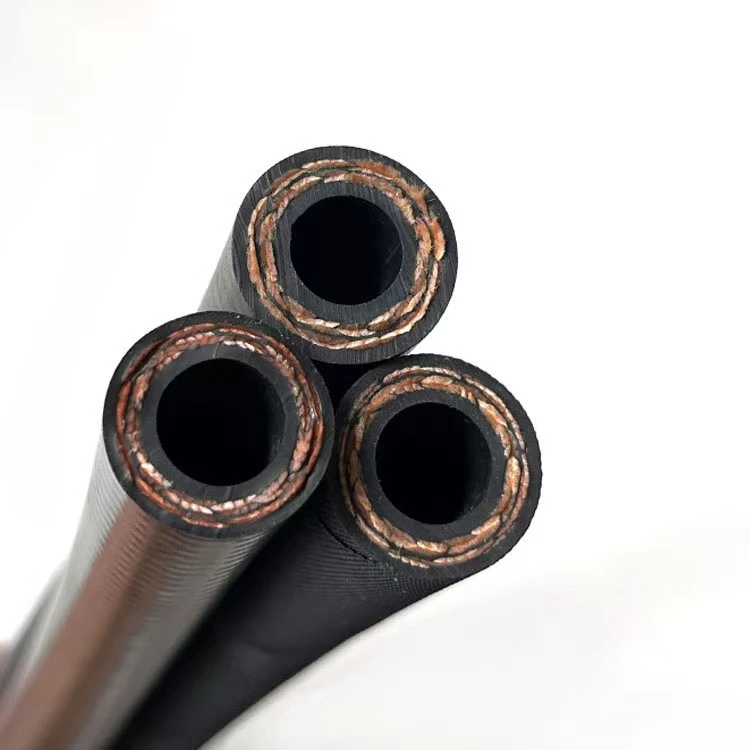ethanol rated fuel line
Oct . 05, 2024 12:17 Back to list
ethanol rated fuel line
Understanding Ethanol Rated Fuel Lines A Comprehensive Overview
As the world shifts towards more environmentally friendly alternatives and fuels, ethanol-based fuels have gained significant traction. Ethanol, a renewable energy source derived from corn, sugarcane, and other plant materials, is blended with gasoline to create various fuel mixtures, commonly identified by their ethanol content. One of the critical components in using these ethanol-blended fuels safely and effectively is the fuel line, specifically, fuel lines rated for ethanol use.
What Are Ethanol Rated Fuel Lines?
Ethanol rated fuel lines are specially designed hoses that can withstand the corrosive nature and chemical properties of ethanol-blended fuels. Traditional rubber fuel lines were not designed to handle ethanol and can degrade, leading to leaks and potential vehicle damage. As the blending of ethanol with gasoline increases—often up to 10% (E10) or even as high as 85% (E85) for certain applications—it's essential to use fuel lines that are explicitly rated for ethanol use.
Importance of Using Ethanol Rated Fuel Lines
Using appropriate fuel lines is vital for several reasons
1. Chemical Compatibility Ethanol can cause standard rubber lines to swell, crack, or harden, which compromises their structural integrity. Ethanol rated fuel lines are typically made from materials that are chemically resistant to ethanol, such as synthetic rubber or thermoplastic elastomers.
2. Durability and Longevity Ethanol rated lines are engineered to withstand the heat and pressure associated with fuel delivery in modern engines. By using these lines, vehicle owners can prevent premature wear and tear, thereby extending the life of their fuel system.
3. Safety The risk of fuel leaks from degraded lines can pose a significant safety hazard. Ethanol-rated fuel lines reduce this risk, preventing potential fires or explosions associated with fuel leaks.
4. Regulatory Compliance Many regions have regulations governing the use of ethanol in fuels. Using certified ethanol rated fuel lines ensures compliance with these regulations, protecting users from fines or penalties.
Types of Ethanol Rated Fuel Lines
ethanol rated fuel line

When selecting ethanol rated fuel lines, one can choose from several options based on the application
- Ethanol-Compatible Rubber Hoses These hoses are often reinforced and designed to handle high pressure. They provide excellent flexibility and resistance to degradation.
- Stainless Steel Braided Hoses For high-performance vehicles, stainless steel braided hoses offer durability and heat resistance while maintaining a lightweight structure. These are particularly beneficial for racing or high-performance applications.
- Polyurethane and Nylon Hoses These materials can also be used for certain fuel lines. They provide excellent chemical resistance and can handle a range of temperatures and pressures, making them suitable for various applications.
Installation and Maintenance Tips
To ensure that your ethanol rated fuel lines perform efficiently, consider the following tips
1. Proper Installation Always follow the manufacturer's guidelines for installation to ensure a secure fit. Improper installation can lead to leaks regardless of the quality of the fuel line.
2. Regular Inspections Periodically check the condition of fuel lines for signs of wear, such as cracks, leaks, or swelling. Early detection can prevent larger issues down the line.
3. Use Compatible Fuel Additives If you are using higher ethanol blends, opt for fuel additives specifically designed for ethanol fuels to enhance performance and protect the fuel system.
Conclusion
The use of ethanol-rated fuel lines is critical for anyone utilizing ethanol-blended fuels in their vehicles or machinery. These hoses ensure the safe, efficient, and compliant use of ethanol in fuel systems, contributing to overall vehicle longevity and performance. By selecting the right materials and maintaining them properly, users can enjoy the benefits of cleaner-burning fuels without running the risk of damage to their engines or fuel systems.
